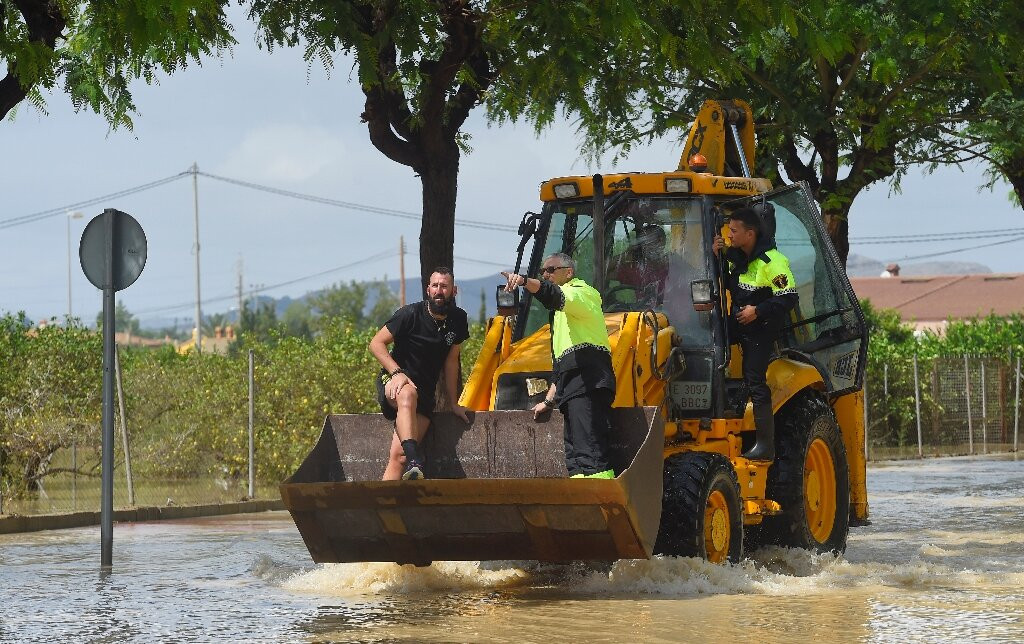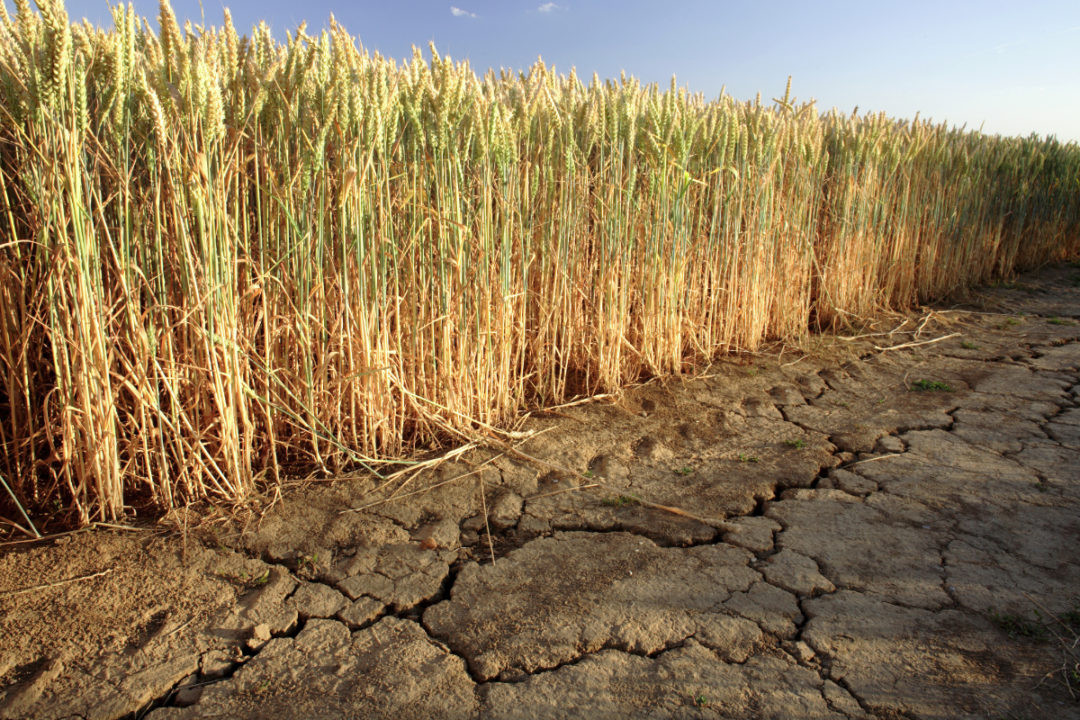The number of people killed in Spain’s deadliest flash flooding in three decades is expected to rise, as the search for dozens still missing continues and more rain is expected to come. At least 95 people, including a 71-year-old British man, have died in southern and eastern Spain following the devastating flash flooding. Torrential rain – amounting to a year’s worth in just eight hours in some areas – inundated cities such as Valencia and Malaga, many found themselves “trapped like rats” in their homes and cars, surrounded by rapidly rising floodwaters.
Authorities fear the death will rise as other regions of Spain were yet to report victims and search efforts continued in hard-to-reach places to find dozens of missing people. Government minister Angel Victor Torres told Spanish broadcaster TVE that “there are many missing people.”
As the search and rescue operation continues, more rain is expected to fall on some of the worst-affected areas. Spain’s state meteorological service has a number of weather warnings, with up to 100mm of rain expected to fall within 12 hours north of Valencia.
The Devastating Aftermath
Flash floods turned streets into rivers, destroyed homes, and killed at least 95 people in Spain’s worst natural disaster in recent memory. Torrential rainstorms hit southern and eastern parts of the country, including the Costa del Sol region, where the city of Malaga is located, and Valencia in the east. Rescuers waded through mud-coloured water while cars and vans appeared stranded. More than 1,000 soldiers from Spain’s emergency response units have been deployed to the worst-hit areas.
The town of Chiva, west of Valencia province, recorded 491 mm of rain in just eight hours, almost equalling a year’s worth, according to Spain’s weather service. Nearly 155,000 homes were without electricity in Valencia, according to the energy minister. “All of Spain weeps with all of you... We won’t abandon you,” prime minister Pedro Sanchez told victims and their families in a televised address. The disaster could not be considered over and “we will deploy all the necessary resources for as long as necessary so that we can recover from this tragedy,” he added.
A British Man Among the Dead
A 71-year-old British man has been confirmed as one of the casualties of the flash floods. President of the Andalusian government, Juanma Morena, said the man had died in hospital hours after being rescued from his home on the outskirts of Alhaurín de la Torre, Málaga. He added that he was suffering from hypothermia and died after suffering several cardiac arrests.
A Climate Change Connection?
While scientists are reluctant to say any single extreme event was caused by climate change, researchers have been quick to point out the role that rising temperatures have had in making the Spanish floods worse.
“No doubt about it, these explosive downpours were intensified by climate change,” said Dr Friederike Otto, from Imperial College London, who leads an international group of scientists who try to understand the role that warming plays in these type of events. “With every fraction of a degree of fossil fuel warming, the atmosphere can hold more moisture, leading to heavier bursts of rainfall.”
Weather researchers say the likely main cause of the intense rainfall was a natural weather event that hits Spain in Autumn and Winter. Called a “gota fría” or cold drop, it sees cold air descend on the warmer waters of the Mediterranean Sea, which has been experiencing extremely hot conditions over the past couple of years. The hot moist air on the surface of the sea then rises quickly, leading to tall, towering clouds that are blown ashore and deposit large amounts of rain.
Researchers say that climate change directly impacted the amount of rain that these clouds carried, pushing it up by 7% for every 1C degree of warming. When the rain starts to fall, it comes down with increased intensity on soils that are not best able to soak up high levels of water.
“As well as increased rainfall extremes, we are seeing hotter summer which can bake the soil and reduce its ability to absorb water,” said Prof Mark Smith, from the University of Leeds. “In turn this amplifies the more direct effects of increased rainfall intensities as more of that water makes it into the rivers.”
There is also some debate among scientists about whether a warmer world makes these storms slower moving, which would exacerbate the amount of rainfall they deliver. This year we have seen some evidence of this type of storm and the devastation that it can bring. In September, Storm Boris brought death and destruction to several countries across Central Europe, again made stronger by the high heat in the Mediterranean. This slow-moving disaster was said by scientists to have been made twice as likely by climate change.
Questions Raised About Preparedness
In Spain, the lack of precise warnings has led to criticism that more could have been done. But meteorologists say that predicting the path of fast moving, intense thunderstorms is a very tricky business.
“Warnings can be a lifesaver in helping people to seek higher ground and safety before a flood. But as we have seen in Spain today, it is incredibly hard to issue warnings for intense thunderstorms because the exact location of the heaviest rainfall is often not known in advance,” said Dr Linda Speight from the University of Oxford. “Forecasters and scientists are working hard on innovative solutions to this challenge, it’s not going to be an easy problem to crack.”
One issue that the flooding in Spain has highlighted is the inability of modern infrastructure to cope with extreme flooding events. As some researchers have stated, our roads and bridges and streets are built to deal with last century’s climate, not the one we have now.
A Brit’s Narrow Escape
Hi {{indy.fullName}} A Brit somehow escaped the deadly Valencia floods by climbing out of her car window moments before it was swept away. Karen Loftus said her and her husband are lucky to be alive after they made the potentially life-saving decision to abandon their car. The couple, from Dorset, were travelling south on the AP-7 motorway to their holiday home in Alicante on Tuesday evening when they were hit by a deluge of rain.
Mrs Loftus, 62, said the next thing they saw was a bridge in front of them being swept away. The Brit, who is the chief executive of UK-based charity Community Action Network, told Sky News that with ten minutes of being stationary, “the water had risen up and started to come into the car”. The pressure meant they were unable to open the vehicle's doors so they decided to escape through the windows. Mrs Loftus added: “Just after we got out of the car, another car floated on top of our car.”
The couple managed to seek refuge inside a lorry but “lost everything” in the disaster including their car and some belongings dating back 20 years. More than 90 people have so far been confirmed to have died in the floods with the death toll expected to rise. Entire towns have been plunged under water, cars swept away and people stranded in their homes in near apocalyptic scenes.
Flood Waters Receding, But the Aftermath Remains
This week’s floods were Spain’s worst since 1996, when 87 people died after torrential rain hit a campsite in the Pyrenees mountains. Europe’s most recent catastrophic floods came in July 2021, killing 243 people in Germany, Belgium, Romania, Italy and Austria. The intense rain has been attributed to a phenomenon known as the gota fría, or “cold drop”, which occurs when cold air moves over the warm waters of the Mediterranean. This creates atmospheric instability, causing warm, saturated air to rise rapidly, leading to heavy rain and thunderstorms. Experts say the warming of the Mediterranean, which increases water evaporation, plays a key role in making torrential rains more severe.
Rescue workers in Spain continued to search for more victims after deadly floods, as questions were raised about how one of the world’s most developed nations failed to respond adequately to an extreme storm. The Spanish government has declared three days of mourning after flash flooding in the eastern part of the country has left at least 70 people dead. Officials say torrential rains that started Tuesday and continued overnight have submerged villages, cut off roads and caused problems with the telecommunications. There are reports of flooding in southern and eastern Spain.
As the floodwaters recede, the enormity of the disaster is becoming increasingly clear. The images of submerged homes, cars piled up like flotsam on the beach, and streets transformed into raging rivers are a stark reminder of the power of nature and the devastating consequences of climate change. The recovery effort will be long and arduous, and the scars of this tragedy will linger for years to come.

















